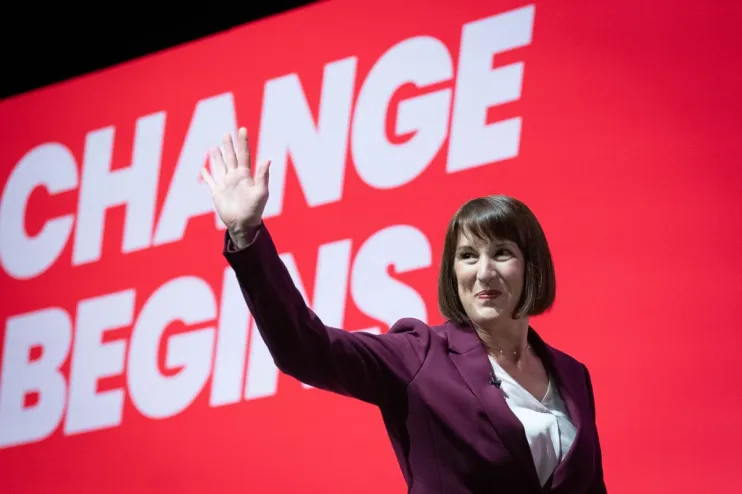By Samuel Norman
Copyright cityam

The “pass the parcel” of Budget speculation has fallen back into the lap of the banking industry with the nation’s top lenders finding themselves as a potential subject of a November cash grab.
Fresh reports have indicated Rachel Reeves is actively considering a raid on Britain’s banking giants – even as she continues to make big swings to garner respect in the City.
The Chancellor has attempted to garner the praise of businesses through deregulation pushes but faced a major roadblock after hiking employer national insurance in last year’s budget, a move which was dubbed a tax on jobs.
But Reeves may be forced to burn another bridge with the banks as she stares down a fiscal black hole of near £30bn.
The new dose of speculation, as reported by The i Paper, follows calls from think tanks and rival politicians to launch a new levy on banks.
Matt Britzman, senior equity analyst at Hargreaves Lansdown, said: “UK banks are heading into the autumn Budget with a target on their backs.
“After a run of bumper profits – around £53bn expected this year for the big five – the sector looks like an easy source of revenue as Chancellor Rachel Reeves searches for ways to plug the fiscal gap without breaking household tax pledges.”
However, the Chancellor has made an effort to distance herself from such a move.
The Treasury has issued its standard refrain that “financial services are at the heart of our economic growth mission” whilst Reeves herself has turned to the bosses of Britain’s top lenders for crisis tariff talks and growth summits throughout the year.
Still, economists have listed a bank tax raid among likely options come November 26.
The route of the prediction comes down to the policy checking the three crucial tick boxes for the Labour government. It can provide a multibillion pound boost to the public purse, it is politically palatable to the average voter and the economic impact may be harder to diagnose.
But the move would be met with fierce contention across the industry. All four bosses of Britain’s ‘Big Four’ banks – Natwest, HSBC, Lloyds and Barclays – have sounded the alarm on a potential hike.
Lloyds’ chief Charlie Nunn declared increasing taxes on lenders “wouldn’t be consistent” with helping boost the economy.
Additional taxation would also be piled onto a sector that already drastically dwarfs its overseas peers. In 2024, the industry’s London rate was 45.8 per cent, dwarfing European rivals Amsterdam (42 per cent), Frankfurt (38.6 per cent) and Dublin (28.8 per cent), according to a report UK Finance submitted ahead of the 2024 Autumn Budget.
The bank tax levers Reeves could pull
Earlier this year, Bank of America analysts warned the “worsening fiscal position in the UK” would raise questions “around the possibility of bank taxes”.
The two main ways the Chancellor could launch a cash grab would be through hiking the surcharge – which sits on top of corporation tax – or taxing ‘windfall’ profits from quantitative easing.
An increase to the surcharge was floated by former Deputy Prime Minister Angela Rayner earlier this year, where she called for the levy to be raised to five per cent – effectively setting the banks’ rate at 30 per cent.
Alternatively, Reeves could look to the profits the bank made through the climb in interest rates. Banks were able to rocket their takings after earning interest on the cash parked at the Bank of England.
The move was suggested by the left-leaning think tank the Institute for Public Policy and Research.
John Dickie, chief executive of BusinessLDN, told City AM: “We need to be very careful windfall taxes aren’t taxing windfalls that are cyclical profits.”
He added, the case would apply to banks and interest rates.
“I think the government needs to be really careful not to do things that will not only affect the sector and have a wider impact on business confidence.”